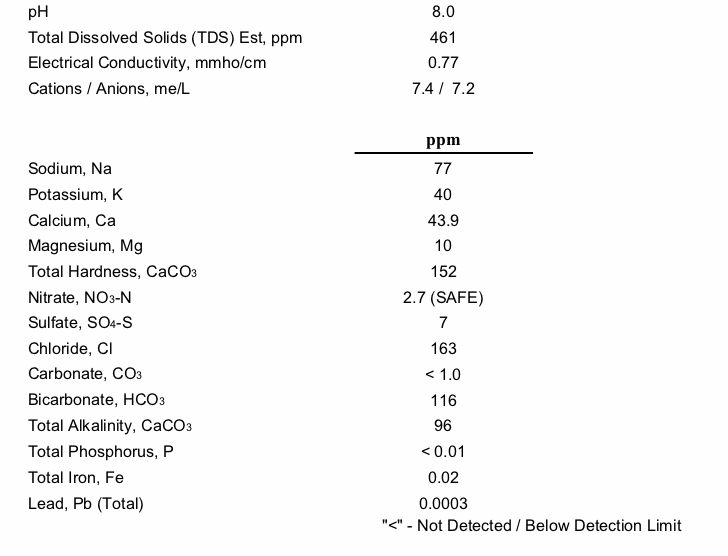StAlphonzo
New Member
- Joined
- Aug 9, 2020
- Messages
- 3
- Reaction score
- 0
Getting back into brewing after a 4 year hiatus, and it seemed like a good time to finally tackle water adjustments as I'm more settled in my location. I received my report back from Ward and it doesn't look great. I'm attaching the report, but the chloride level seems unmanageably high. Was hoping for some advice about whether my best bet is to dilute with purchased distilled water, look for an RO system to dilute, or start from scratch from distilled or RO. Also kind of curious if I can just plow ahead adjusting around the chloride level since the handful of beers I've made since returning to the hobby seem to be coming out reasonably well despite not adjusting the water at all. Appreciate any help people can give.




